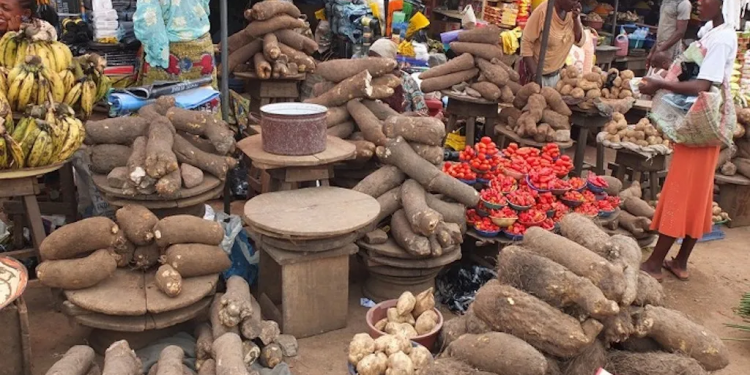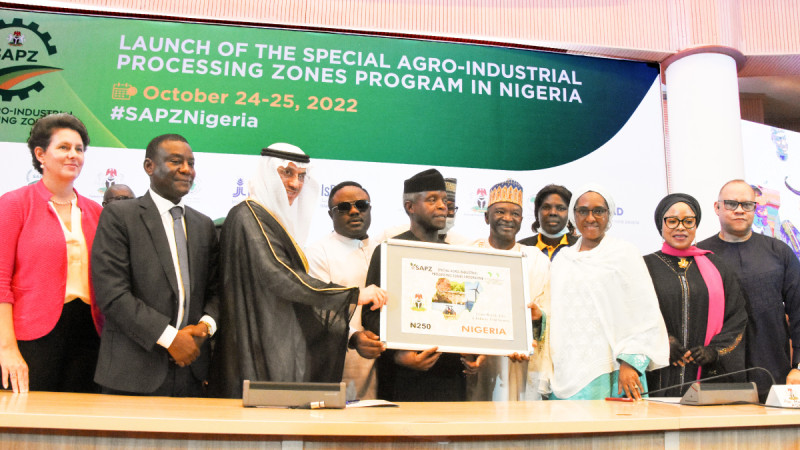The Federal Ministry of Agriculture and Food Security has announced its goal to reduce post-harvest losses in the agricultural sector by 25% as part of its commitment to enhance food security and increase domestic production. This announcement was made during the Special Agro-Industrial Processing Zones (SAPZ) High-Level Implementation Acceleration Dialogue held in Abuja on Monday.
The SAPZ initiative is designed to strengthen the agricultural sector through targeted investments that integrate farming, processing, and marketing. The goal is to enhance productivity, minimize losses, and increase value addition, thereby contributing to food security, job creation, and poverty alleviation. The initiative receives support from the African Development Bank, the International Fund for Agricultural Development, and the Islamic Development Bank.
During his keynote address, Minister of Agriculture and Food Security Abubakar Kyari stressed the importance of a collaborative approach to tackle existing challenges in agriculture. “Our objective is clear: we must enhance our production capabilities and reduce post-harvest losses from the current 45% to 20%,” Kyari stated. He emphasized that this reduction is vital not only for food security but also for improving farmers’ livelihoods.
Kyari outlined that the SAPZ initiative aims to establish agro-industrial processing zones in seven states and the Federal Capital Territory, focusing on key crops such as cassava, rice, maize, and cocoa. The initiative is expected to create approximately 500,000 direct and indirect jobs while significantly contributing to the nation’s food supply.
Minister of Finance Wale Edun reaffirmed the government’s commitment to agricultural industrialization. “The successful production of food is fundamental to our economic stability,” he noted. Edun added that achieving production goals would have a profound impact on inflation, interest rates, and the country’s trade balance. He underscored the importance of collaboration between federal and state governments and private sector partners for the success of the SAPZ program. “We cannot afford to disrupt domestic production while addressing the immediate food needs of our population. This requires a careful balance of both short-term and long-term strategies,” he said.
Abdul Kamara, Country Director of the African Development Bank, highlighted the SAPZ program’s potential to transform the rural economy. “By reducing post-harvest losses from 50% to 10-20%, we can make a significant contribution to the economy and improve food security,” Kamara stated. He urged stakeholders to work together to overcome challenges that hinder implementation.
The workshop gathered various stakeholders, including state governors and representatives from development partners, to discuss ways to accelerate the SAPZ programme. Dede Ekoue, Country Director of the International Fund for Agricultural Development, praised the initiative and commended Kyari for his leadership. He noted ongoing efforts in Kano State, where IFAD is supporting a pilot project to enhance the capabilities of rice and tomato farmers. Ekoue emphasized the importance of partnerships, stating, “We are pleased that the implementation of these strategies has led to some quick wins, such as the signing of off-take contracts.”
This collective effort aims not only to reduce post-harvest losses but also to foster sustainable agricultural development across Africa.










